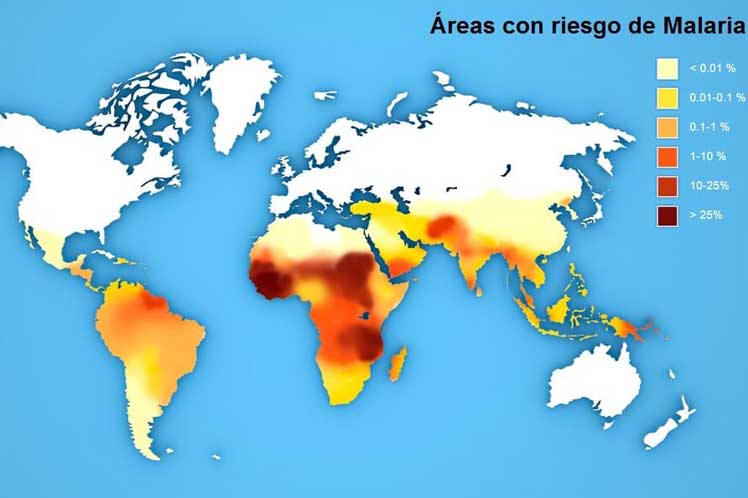According to the World Health Organization (WHO), in 2020 this disease generated 241 million cases and 627 thousand deaths, of which more than two thirds were African children under the age of five.
An increase of some 14 million cases and 69 thousand deaths was registered compared to the figures for 2019, and according to estimates 47 thousand of these cases occurred due to interruptions in prevention, diagnosis and treatment services during the Covid-19 pandemic.
The agency further revealed that global incidence fell steadily between 2000 and 2015, but progress has slowed or stalled in recent years, particularly in sub-Saharan African countries.
Just over half of all malaria deaths in the world in 2020 were concentrated in four nations on that continent: Nigeria (31.9 percent), the Democratic Republic of the Congo (13.2 percent), the United Republic of Tanzania (4.1) and Mozambique (3.8).
Faced with this scenario, the WHO made a call to invest in new approaches in the fight against the disease, in means of detection, in pharmacological therapies and other tools to advance more quickly towards the end of the disease.
On this occasion, the motto that accompanies the day is “Harness innovation to reduce the malaria disease burden and save lives.”
pgh/llp/jcm/ifs









